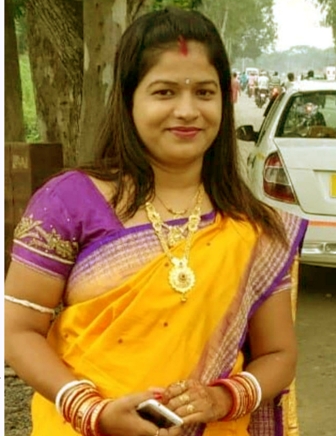Such tradition is Prathamastami that celebrates the firstborn child of every family in Odisha

By Er Taraprasad Mishra
Jajpur,Dec 4 : Incredible India has some incredible festivals. Odisha, a state of India, has some unique & interesting festivals. According to an Odia proverb, 13 major festivals are celebrated in 12 months of the Odia calendar. However, there are many more auspicious occasions and celebrations that take place round the year in the Odia culture.
One such tradition is Prathamastami that celebrates the firstborn child of every family in Odisha. On this day, the first child is called ‘podhuan’. Today is the eighth day in the Odia month of Margashira (8 days after Kartik Purnima). It is celebrated as Prathamastami. (Prathama means first & Astami means eighth day) Prathamastami is celebrated in Odisha for the wellness, long-life & prosperity of the first-born or eldest child in a family.
Gender is not an issue, qualification needed is one has to be the first-born child of her/his parents . The maternal uncles, who are labelled as ‘astami bandhu’ present them with new clothes along with sweets and delicacies.
The family, especially mothers pray for the well-being and long life of the firstborn son or daughter as it is a belief that the first child becomes the flagbearer of responsibilites in the family after the death of parents. Prathamastami is celebrated in the month of Margasira, on the eighth day of the Krushna Pakhya or dark fortnight.
Goddess Sasthi Devi is prayed to on this occasion. The special enduri pitha is made at this time of the year, in every household to commemorate Prathamastami. Made with chhena (cottage cheese), jaggery and grated coconut stuffing, this is the only Odia dish prepared using turmeric leaves .
A pot (called the athaara handi) with its mouth tied with a cloth is mounted on the hearth on which turmeic leaves containing elongated-shaped batter is filled with chenna, jaggery and grated coconut stuffing.
It is covered to steam properly and get cooked before being served. Enduri pitha is identified by the quintessential aroma it emnates due to the usage of turmeic leaves. Prathamastami was also known as Soubhagini Astami.
On this day, farmers paid obeisance to thank Goddess Soubhagini for being blessed with children and abundant crop production. Moreover, Prathamastami was also called as Kala Bhairabaastami due to the now-extinct practice of praying to Bhairav to get rid of bad karma. Lord Lingaraj is said to visit Kapali matha, his maternal uncle’s house on this day.
The presiding deities of this matha, Lord Baruneswar and Godess Banadevi are the maternal uncle and aunt of Lord Lingaraj. It is said that drinking water from the Paapanaasini pond on the premises of this matha redeems devottees of committed sins.
Similar to this Odia tradition, there is a segment of people in Judaism who observe the Fast of the Firstborn where the first sons in the family fast in remembrance of the firstborn children of Hebrews saved from the deaths caused by the Plague of the Firstborn of Egypt.
First-borns have some special privileges and are entrusted extra responsibilities in India. Being the eldest has its perks too – rewarded with extra “share” called the “Jyeshta-bhaga” (Part/share of the eldest). Prathamastami makes the siblings jealous when the eldest sibling gets the attention & new clothes! Who doesn’t want new clothes, good food & special treatment.
In some families of 4-5 members, where both the parents happen to be the first-born, a majority in the family is first-born! They celebrate Parthamastami for all their kids so that the younger ones don’t cry or feel left out.
Worship to Gods like Sathi/Shasthi Devi & Lord Ganesha & family deity is crucial as they protect children. Prayers for well-being & to avoid malignant health issues. The first-borns wear new clothes gifted by their maternal grandparents/uncle. The first-borns, dressed in new, are honored amidst chanting of mantras & arati/dwipa (lighted lamp) by the elderly ladies- grandmother/mother. Kheer (Indian dessert) called Kheeri/Khiri in Odia, is also prepared along with a special type of Pitha.
The Gods are offered first and then after the first-born has, it’s open for all! Then, no one feels left out. The social significance of this festival is that the first-borns are brighter and it is ultimately they who take up the burden of the family after the death of the parents.
According to psychologists, the first-borns are mostly healthy, obedient and tradition-bound. Therefore, the family tradition is maintained through them. For such obvious reasons the eldest child is honoured to occupy the respectable place in the family and it is he who maintains the heredity.






